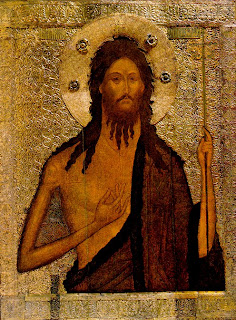Jeremiah 31:7-14; Psalm 147; Ephesians 1:1-14; John 1:1-18
This will be my 20th year in Texas, but even if I live here another twenty the true Texans will always let me know I am a small t Texan at best and even that is only because Lisa and I created two big T Texans to vouch for us. You’d never hear someone from O-HI-O speak like that even though Buckeyes are tough nuts to crack. No. Only Texans believe the Union joined them not vice versa. So some years ago I decided the only way to fit in was to wear a disguise. Not boots and a Stetson or saying ya’ll while speaking as slow as molasses, although all those things might help. No, to disguise yourself as a Texan you first have to feel like a Texan and the only way you can really feel like a Texan is to drive a pickup truck, the bigger the better. For the past five years or so we’ve been without the benefit of the state vehicle of Texas but no more. After briefly flirting with the idea of a convertible my big T Texas son, Josh, talked me into a 2011 Texas Edition Silverado Extended Cab. “That's right you're not from Texas…but Texas wants you anyway” (Lyle Lovett) The texts for Christmas 2a are about the identity that comes from belonging to the Lord. In Jeremiah the one who scattered Israel brings them back from the north and the ransomed of the Lord rejoice and sing once again in the land of Zion. In the Psalm Jerusalem delights in the Lord who controls the weather, even in Babylon, and enjoys favored nation status as God’s word and laws and decrees are revealed only to them. The Ephesians are beloved of the Lord, chosen before the foundation of the world, sealed by the Spirit and inheritors of all the riches of God’s grace. The In the Beginning Forever Word becomes flesh so that those who receive him by believing in his name might become the children of God. Wait a minute. Josh thinks he’s going to drive the Silverado. Not a chance, son, even if you were born in Texas and I only got here as soon as I could.





















